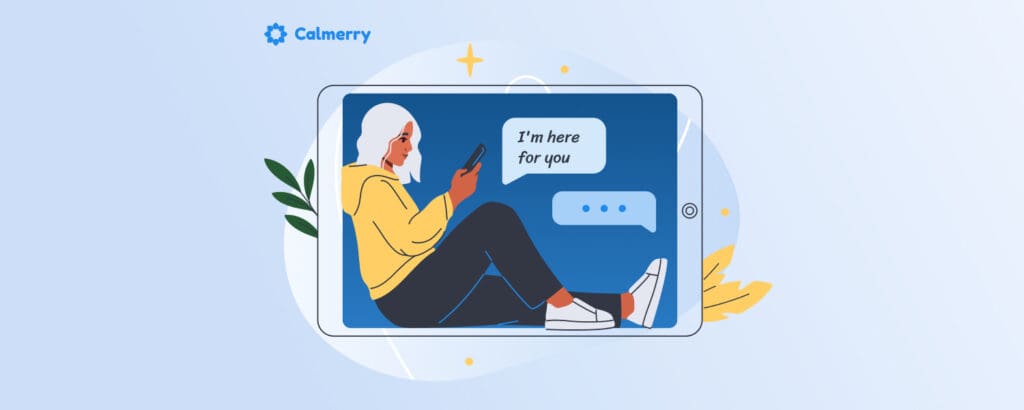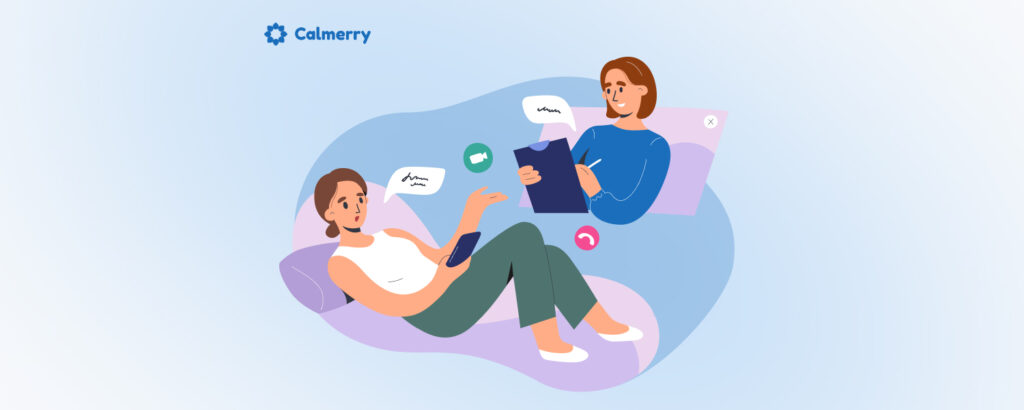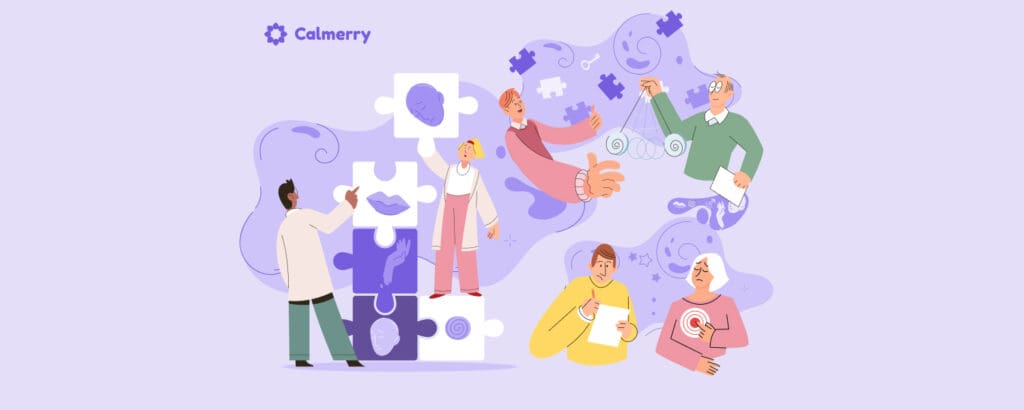Why Seek Counseling? 5+ Reasons to Go to Counseling
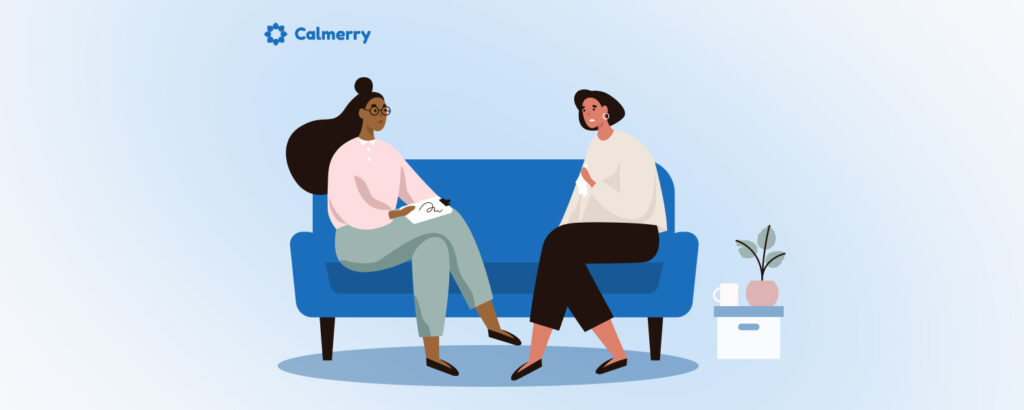
In this article
Sometimes, life throws challenges that feel too big to handle alone.
Whether it’s stress from work, relationship issues, unexpected self-doubt, or just feeling stuck – counseling can be a guiding light. It’s a space where you’re listened to, understood, and supported in finding your way through whatever you face.
Let’s explore some key reasons why going to counseling could be one of the best decisions you make for yourself.
What is counseling?
Counseling is usually a short-term type of mental health care where you talk with a trained professional about your feelings, thoughts, and behaviors.
Counseling and psychotherapy are not the same, and the two have some distinct differences.
Whether you’re feeling really down, going through tough times, having a crisis, or just want to know yourself better, counseling can be a big help. It’s a way to understand yourself better and figure out how to handle different situations in life.
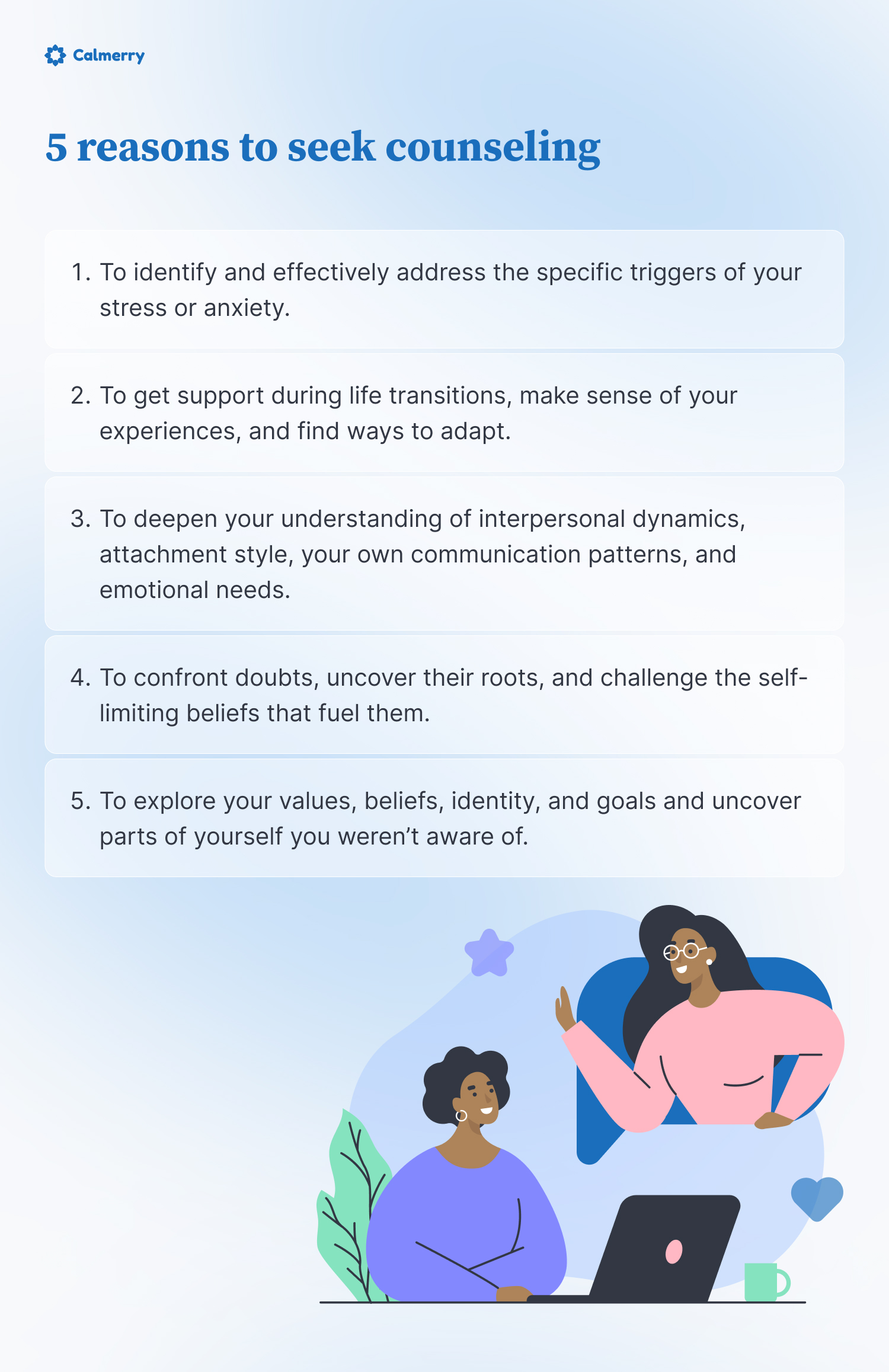
Why is counseling important?
Counseling isn’t just for when you’re at your lowest. It’s a tool to help you grow, learn about yourself and the function of your behaviors, and maintain your mental health.
Research proves the effectiveness of counseling, especially for preventing more serious problems. [1] (2006) The Effectiveness of Counselling: COSCA’s Review and Comments. Stirling: Counselling and Psychotherapy in Scotland, available at: https://www.cosca.org.uk/application/files/5615/2119/6776/Effectiveness_of_Counselling06-24-15.pdf
Here’s why it’s so important:
- You can talk about anything without feeling judged.
- It helps you understand why you feel a certain way and what to do about it.
- It can teach you effective ways to communicate your needs and boundaries.
- You learn coping mechanisms for managing stress, anxiety, depression, and other mental health challenges.
- You discover more about who you are, what you like, and how to be the best version of yourself.
Counseling is like having a guide in life’s journey, someone there to help you through the tough parts and celebrate the good times, too.
5 Reasons for counseling
1. To manage stress and anxiety
Counseling tackles stress and anxiety by first creating a safe space where you can openly discuss what’s bothering you without fear of judgment.
It helps identify the specific triggers that set off your stress or anxiety to make it easier to address them directly and effectively.
Counselors teach practical coping techniques like mindfulness, cognitive reframing, emotional tolerance, and deep breathing exercises that can calm your mind in moments of distress. [2] Lohan, S., Malik, P., Saini, A., & Dudi, J. (2022). Counselling for Stress Management: A review. ResearchGate https://www.researchgate.net/Counselling_for_Stress_Management_A_Review
You will also build resilience to face stressful situations with greater confidence and adaptability.
This toolkit can help you ensure stress and anxiety don’t have the final say in how you live your day-to-day life.
2. For support during life transitions
Change, even when positive, can be daunting. Moving cities, changing jobs, new life stages, or facing the loss of a loved one brings a mix of emotions and challenges.
Counseling during these times acts as a supportive anchor. A counselor can guide you in developing coping strategies, making sense of your experiences, and finding ways to adapt.
This can help you emerge stronger and better prepared for what comes next.
3. To improve relationships
Whether with a partner, family, colleagues, or friends, relationships are central to our well-being – though they can sometimes become sources of distress.
Counseling offers a unique opportunity to deepen your understanding of interpersonal dynamics, attachment style, your own communication patterns, and emotional needs.
By exploring these areas, you can learn how to express yourself more clearly, listen more effectively, deepen intimacy, and build healthier, more fulfilling relationships. [3] Schofield, M. J., Mumford, N., Jurkovic, D., Jurkovic, I., & Bickerdike, A. (2012). Short and long-term effectiveness of couple counselling: a study protocol. BMC Public Health, 12(1). https://doi.org/10.1186/1471-2458-12-735
4. To boost confidence and self-esteem
Low self-esteem and lack of confidence can silently erode your quality of life and affect its diverse aspects – from your career choices to your relationships.
Counseling provides a reflective space to confront these feelings, uncover their roots, and challenge the self-limiting beliefs that fuel them.
Through guided self-exploration, behavior and lifestyle modification, and positive reinforcement, counseling can help you recognize your worth, celebrate your strengths, and step into a more confident version of yourself.
5. For personal growth and self-discovery
Personal growth and self-discovery are ongoing journeys that sometimes feel lonely and confusing.
Counseling offers a supportive environment to explore your values, beliefs, identity, and goals. It can help you uncover parts of yourself you weren’t aware of and challenge limiting beliefs.
Counseling can create a space for growth by using strategies to build emotional tolerance to uncomfortable emotions that often accompany the change process.
– Tiffany Lovins, Licensed Mental Health Counselor (LMHC)
You can gain insights into your personality and behaviors to lead a more fulfilling and authentic life.
So, whether you’re seeking a new direction in life or want to enhance your self-awareness, counseling can be a powerful ally in your personal development journey.
Start online counseling on Calmerry
If the reasons outlined here resonate with you, it may be time to seek your own path toward inner harmony and fulfillment through counseling.
Starting online counseling with Calmerry is simple and accessible. From the comfort of your own space, you can engage in meaningful one-on-one text or live video sessions with a therapist who understands you.
The first step simply involves answering a few questions so we can match you with a practitioner that fits your individual situation. From there, you and your counselor will define priorities, establish goals and milestones, and determine the optimal path forward.
Growth and healing happen on your terms. Start your counseling journey and discover the positive change it can bring to your life.
FAQs
Is counseling the same as therapy?
Counseling and therapy are terms often used interchangeably, but they have some differences. Both offer support for emotional and mental health, but the way they do it can vary.
Counseling usually focuses on specific issues or situations. It’s often short-term, helping you with strategies to tackle a problem you’re facing right now, like stress at school or trouble with friends.
Therapy, or psychotherapy, digs deeper. It can last longer and looks into your feelings and behaviors more broadly. Therapy explores patterns in your life that affect your well-being and works on deeper issues that might be causing you distress.
Both are great ways to get help, and the best choice depends on what you need support with.
When and how often should you see a counselor?
It really depends on what you’re going through and what you and your counselor decide together.
Some people might see a counselor twice or once a week, especially at the start when they’re working through a lot. Over time, they might meet less often, like once every two weeks or once a month, as things get better.
If you’re dealing with something really tough, you might need to see a counselor more often at first.
Pacing the frequency of sessions to match the intensity of need is critical in seeing progress toward your goals. Starting with more frequent sessions and then decreasing the frequency as things get better is often much more effective in reaching your desired outcomes.
– Tiffany Lovins, Licensed Mental Health Counselor (LMHC)
It’s okay to ask your counselor what they think is best and to tell them what you feel you need. You can figure out the best plan for you together.
How long is counseling?
Counseling can vary in length, depending on what you need help with.
It can be short-term, lasting just a few sessions, or it can go on for several months to work on bigger issues.
It all depends on you, what you’re dealing with, and how you feel as you start to work through things.
What are the objectives of counseling?
The objectives can be as diverse as people’s mental health needs.
The main goals of counseling are to help you understand yourself better, cope with life’s challenges, and make positive changes.
Here are some key objectives:
- Understanding your feelings – learning why you feel the way you feel and how to handle these emotions.
- Improving communication – finding better ways to express yourself and understand others.
- Building coping skills – developing strategies to manage stress, anxiety, grief, depression, and any intense emotions.
- Making decisions – helping you make choices about your life, like dealing with a tough situation or planning your future.
- Boosting self-esteem – working on feeling better about yourself and recognizing your strengths.
- Setting goals – figuring out what you want to achieve and planning to get there.
- Healing and growth – helping you heal from past traumas and grow into the best version of yourself.
Counseling is all about giving you the tools you need to live a happier, healthier life. And you always deserve it!
(2006) The Effectiveness of Counselling: COSCA’s Review and Comments. Stirling: Counselling and Psychotherapy in Scotland, available at: https://www.cosca.org.uk/application/files/5615/2119/6776/Effectiveness_of_Counselling06-24-15.pdf
Lohan, S., Malik, P., Saini, A., & Dudi, J. (2022). Counselling for Stress Management: A review. ResearchGate
https://www.researchgate.net/Counselling_for_Stress_Management_A_Review
Schofield, M. J., Mumford, N., Jurkovic, D., Jurkovic, I., & Bickerdike, A. (2012). Short and long-term effectiveness of couple counselling: a study protocol. BMC Public Health, 12(1). https://doi.org/10.1186/1471-2458-12-735
online therapy
live video session


